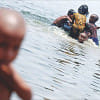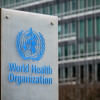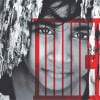Dengue Vaccine: Relief turns into worry
The world's first ever vaccine to prevent dengue fever works just fine on those who had contracted the disease before, but brings trouble to the people who were never infected by the virus.
Despite global concerns, including from the WHO, the country's drug regulators gave the green light a couple of months ago to Sanofi, manufacturer of the product, for bringing in the vaccine to Bangladesh.
However, Sanofi Bangladesh said it would proceed with caution before the dengue vaccine, Dengvaxia, is imported.
Late last month, Sanofi Pasteur, the vaccine division of the multinational pharmaceutical company, said new analysis on long-term safety and efficacy showed that recipients of the vaccine without prior infection might suffer from severe forms of the disease. The analysis was done based on six year's clinical data.
But the World Health Organisation gave this warning in July 2016.
The global health body said that it supported the use of Dengvaxia in “highly endemic areas” and on “seropositive individuals” (those who had been infected by the dengue virus before).
Noting that there was an elevated risk of dengue in vaccinated “seronegative individuals,” (those who never contracted the disease) the WHO said on its website that research into this was a “high priority”.
Farhana Tofail, head of communications at Sanofi Bangladesh, said during clinical trials, the vaccine had proved to be very effective on those who had dengue once. But in light of the new observations, the vaccine could be marketed bringing changes to the accompanying literature.
“It has not been launched in Bangladesh yet. We will not import the vaccine until we get a clear message from the Sanofi headquarters,” she added.
Dengvaxia is the first dengue vaccine to obtain a licence and has been approved by 19 regulatory authorities around the world, according to the WHO.
A nearly two-year national immunisation programme of the Philippines, targeting 8.3 lakh children, was halted recently after the latest analysis.
“If we find a genuine ground, we will de-register it [the vaccine],” said Md Salauddin, assistant director of the Directorate General of Drug Administration (DGDA).
The risk-benefit ratio is evaluated before any drug or vaccine is approved. Dengvaxia is registered in France, which is why it was approved here as Bangladesh's law requires developed nations' approval of a drug or vaccine for importing it, he added.
“Before making a further move, we will seek suggestions from the WHO and research organisations like the International Vaccine Institute,” he said.
Sanofi proposes that the national regulatory agencies update the vaccine's “prescribing information” and request healthcare professionals to assess the likelihood of prior dengue infection in an individual before vaccinating.
However, Muniruddin Ahmed, a teacher of clinical pharmacy and pharmacology at Dhaka University, said the government should not allow marketing of the vaccine until enough clinical data is collected.
“Otherwise, a disaster is imminent. The country lacks a strong regulatory authority and a mechanism to punish drug companies for any wrongdoing.”
Every year an estimated 390 million dengue infections are reported worldwide. People can be infected up to four times in their lifetime, but the highest risk of severe form of infection has been seen in people getting the fever for the second time from a different strain of the virus, according to a Sanofi statement.
As many as 2,588 dengue cases have been reported across the country so far this year. Five of them died, according to the Directorate General of Health Services.
The number of those affected last year was 6,060, the highest since 2002, and the death toll was 14.
Most of the dengue cases were reported between June and October as intermittent rain, high temperature and humidity create the ideal breeding condition for Aedes mosquitoes that transmit the virus.

 For all latest news, follow The Daily Star's Google News channel.
For all latest news, follow The Daily Star's Google News channel. 








Comments